Getting Into Motorsport – It’s Easier Than You Think
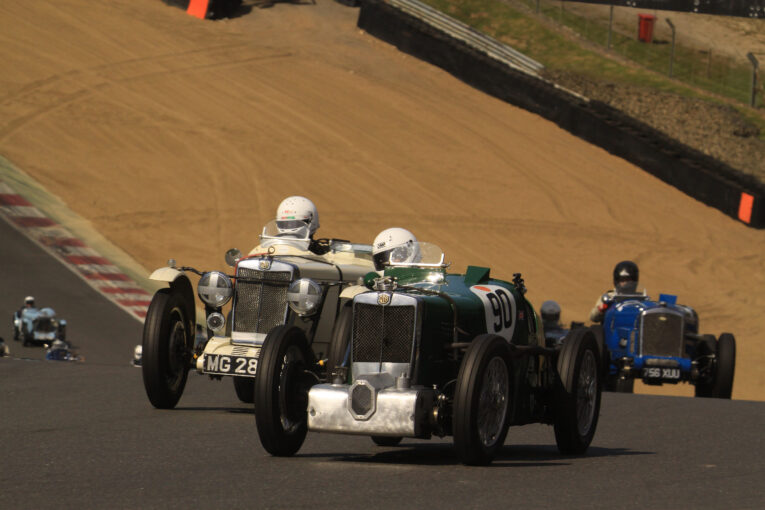
Ever fancied having a go at motorsport? Most of us have pondered what it would be like to be Lewis Hamilton or Sebastian Loeb for the day. But all too often the idea is dismissed as too expensive, too complicated or too risky to undertake with a prized classic. The reality is that club-level motorsport doesn’t have to be any of those things. Pick the right event and you can take part in a standard road car for less than the price of a night out. You don’t even need a driving licence – drivers as young as 14 can take part in a lot of club-level events.
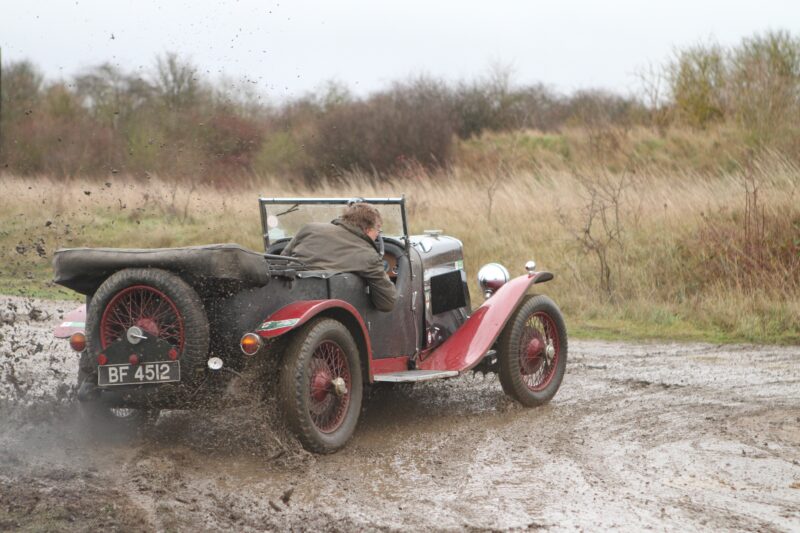
A Lea Francis being put through its paces at an autotest (photo courtesy of Phil Jones)
A spot of friendly competition can add a whole new dimension to the time you spend with your classic car, whether you’re competing against friends or simply trying to improve on a previous result. Even if you’re not competitive by nature, it can be a great opportunity to meet some likeminded enthusiasts as well as form a deeper bond with your steed. Following our escapades at Le Mans earlier in the summer we thought we’d put together a brief summary of what is involved should you wish to legally drive your classic, how shall we say, with a little more exuberance.
How to get involved
The best place to start is to find a Motorsport UK recognised club near you. There are dozens of local motor clubs across the country that host their own motorsport events, not to mention larger organisations like owners’ groups and the Vintage Sports Car Club. Once you’re a member of one club you’ll often be able to compete in other clubs’ events as a guest entrant.
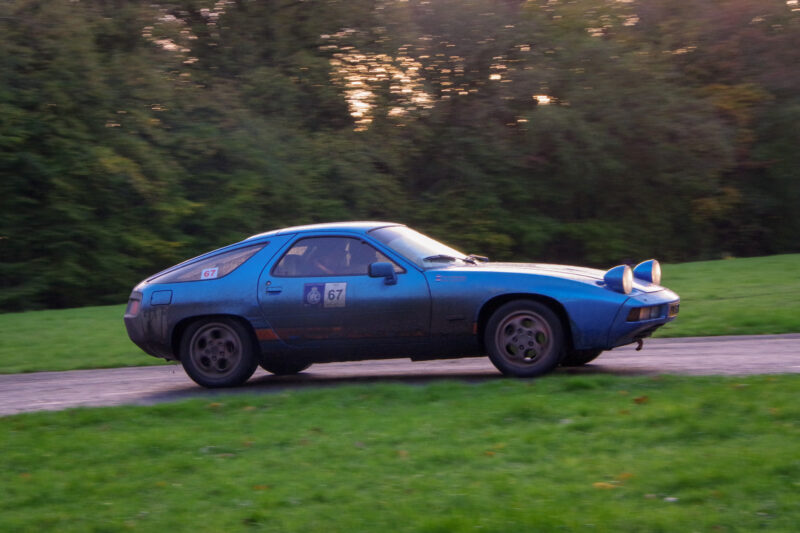
Most of the events discussed here require an RS Clubmans licence. That might sound serious, but in fact, this entry-level licence is completely free and can be issued immediately through an online form. Events held under this licence do not require helmets, fireproof overalls or any safety modifications to the car. Hill climbs and sprints require an RS Interclub licence. This currently costs £74 and takes around a week to process, although it’s still just an application form, with no test or medical required.
What sort of car do I need?
The beauty of club-level motorsport is that you can turn up in whatever you’ve got. We’ve seen a 1920 Rolls Royce Silver Ghost autotesting, a three-wheeled Reliant Rialto used for trialling and a Daihatsu Hijet van chucked sideways around an autosolo course.
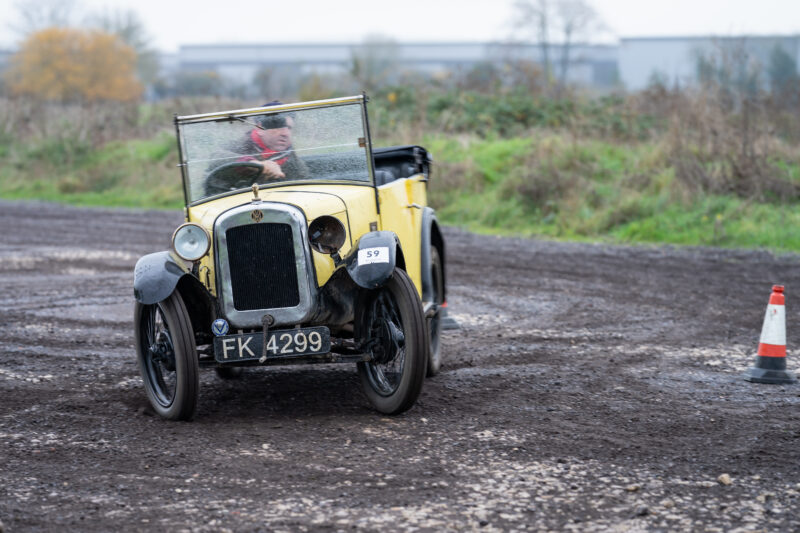
That said, some cars are better suited to certain disciplines than others. Plenty of ground clearance, for instance, is useful for trials. And while we’d have no hesitation whatsoever taking on an autosolo or a navigational rally in an unmodified daily driver, a few modifications can be useful if you intend to take on tougher events like classic trials.
How much will it cost?
Ah, the million dollar question. Or not. Entry fees for a club autotest can be as little as £10 and there are no modifications or safety gear required. It really is that simple.
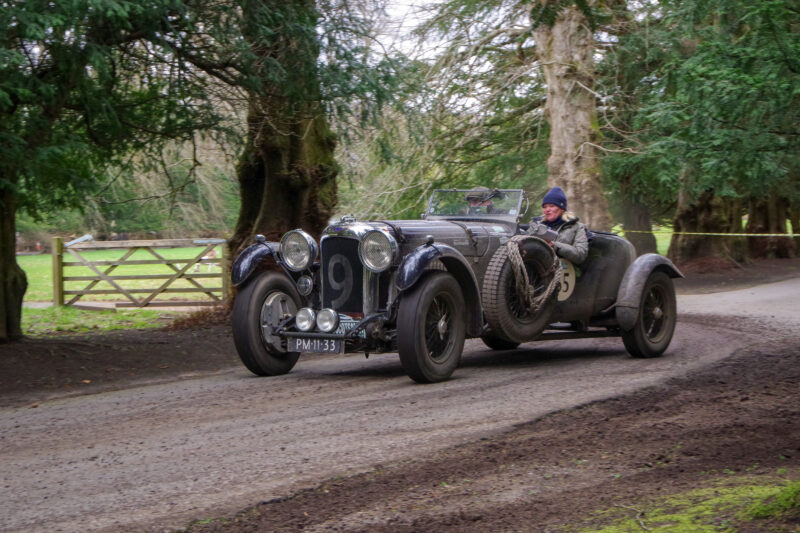
At the opposite end of the scale, entry fees for sprints and hill climbs range from under £70 to over £200. The biggest investment for these events is a helmet, overalls and gloves, all of which have to meet current FIA or equivalent standards. We’d strongly recommend buying new for the helmet (prices start at around £300) but the suit and gloves can be bought second hand (£200 should get you a full set).
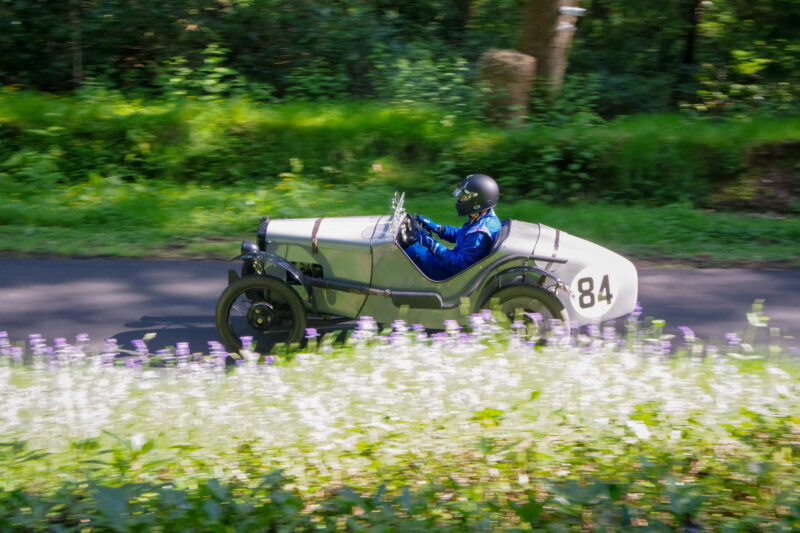
Motorsport disciplines
From karting to tractor pulling, the number of motorsport disciplines out there is almost too numerous to list, so we’re going to focus on the sort of things that you could realistically do with a standard or lightly modified road car and briefly cover each.
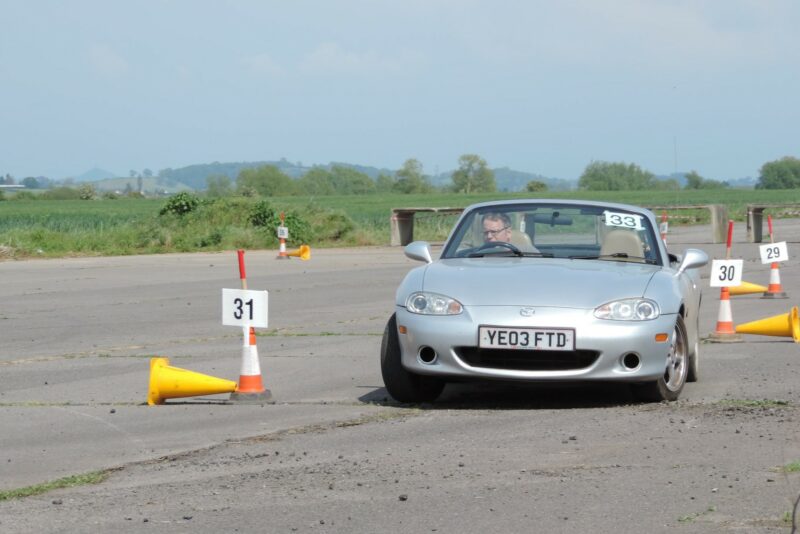
Autotests and Autosolos
Autotests and autosolos are a great place to start. These both follow a timed course around a series of cones. The key difference between them is that autotests can feature reversing manoeuvres, while autosolos are entirely run forwards. If the idea of reversing into a parking space sounds a bit pedestrian, it’s worth checking out some of the videos of autotesters in action to see that it is anything but.
Lurid powerslides and handbrake turns – the sort of shenanigans that would see you swiftly black flagged on a track day – are all actively encouraged. Overall, however, the speeds are relatively low and the risk of hitting anything other than a marker cone is virtually non-existent, making autotests and autosolos a very safe way to explore your car’s limits.
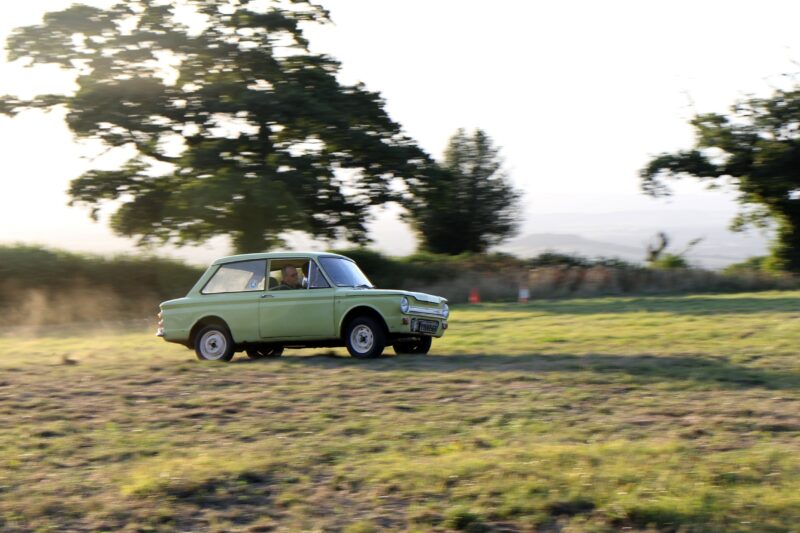
Rallying
Navigational rallies and treasure hunts can be an altogether more cerebral challenge, with cryptic clues scattered about like an automotive crossword. At the more serious end of the spectrum, however, road rallies and targa events can demand some pretty committed driving, sometimes including dirt or gravel sections.
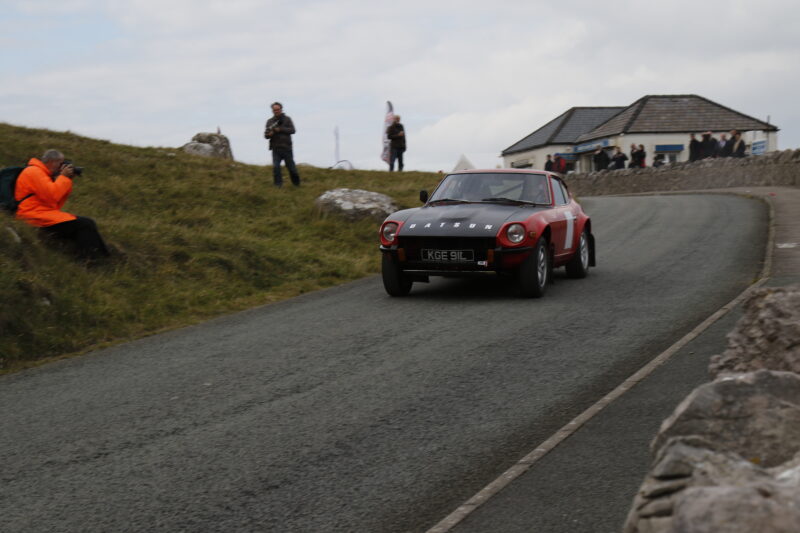
Trials
The uniquely British sport of trialling can best be described as off-roading in cars that aren’t designed for the purpose. Car trials (traditionally known as production car trials) take place in a single venue, where the challenge is to clear a series of temporary courses without stopping or hitting any markers. It’s about traction and manoeuvrability rather than speed – you’re scored on how far up each course you manage to get.
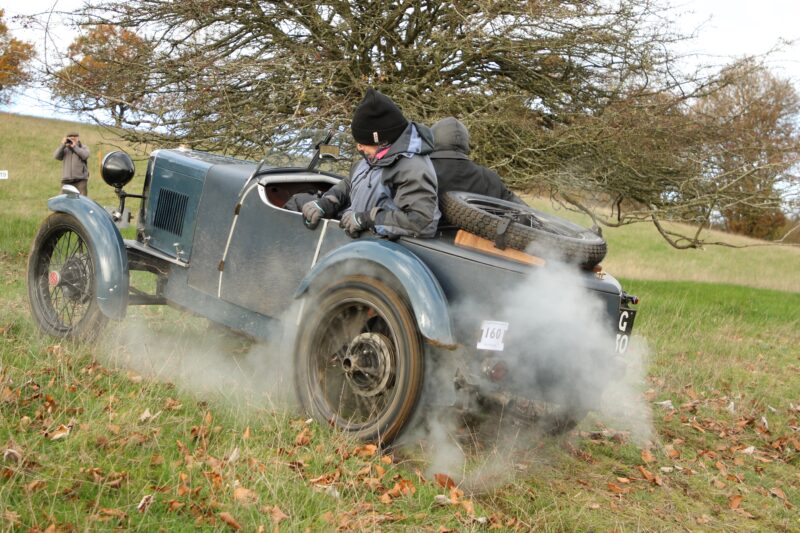
Classic trials – confusingly named after the format rather than the age of the vehicle – follow a similar principle, except the crews also have to navigate along road sections between the off-road tests. Although open to completely standard cars, these events tend to be a little rougher than car trials and often favour those with slightly raised ground clearance. Other modifications, such as lowered final drive ratios and chassis bracing are also allowed.
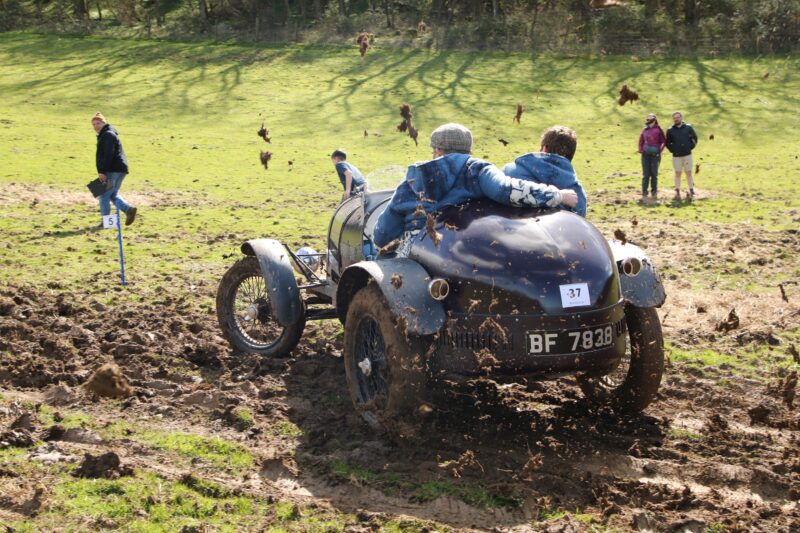
Speed events
Sprints and hill climbs are the fastest events that you can contest with a completely standard road car. Speeds can be comparable to circuit racing and there’s precious little run-off area on some courses. Unlike circuit racing, however, it’s just you and the car. There’s no temptation to out-brake the driver in front, and no risk of them collecting you if they get it wrong.
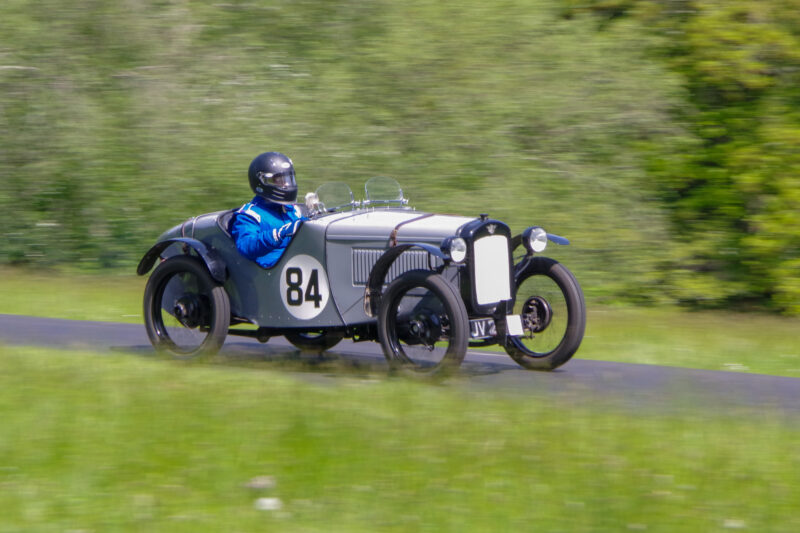
The courses are short, with hill climb runs (like the one at Shelsley Walsh, for example) typically taking well under a minute to complete, but you’ll generally get several practice runs as well as two timed attempts. Depending on the series, the car may require minor modifications, such as the fitment of fluid catch tanks. Roll bars and harnesses are encouraged, but they’re not essential for road-going production cars.
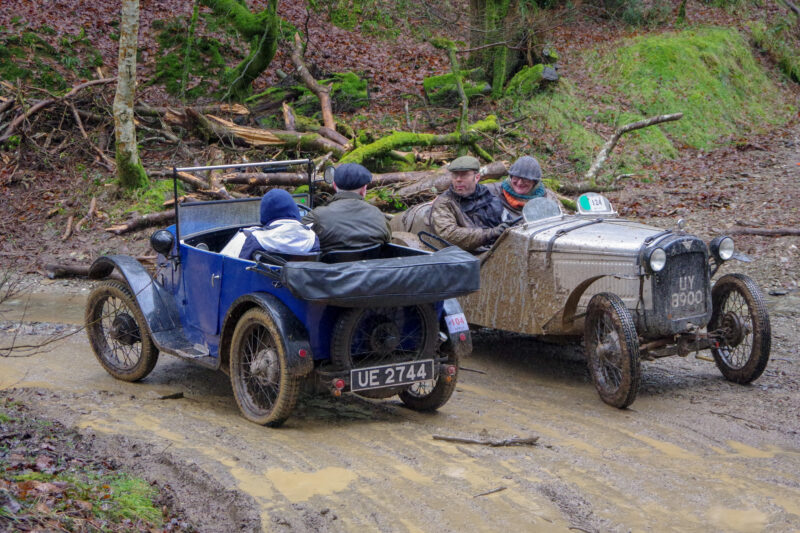
We are firm advocates of getting out there and driving and there are myriad options for you to get involved in motorsport and do just that. All of the above present an opportunity to have some fun, free from the shackles of modern day driving and unhindered by the speed limits and rules and regulations of public roads. What’s more, it doesn’t have to break the bank and you can get started with your own car and just a few quid. The important thing is to enjoy yourself and your classic and make some friends along the way. So what are you waiting for? If you don’t already have a classic candidate then a suitable steed is only a few clicks away.
Photo Credits: Phil Jones, Steve Shelley, Steve Cockram


